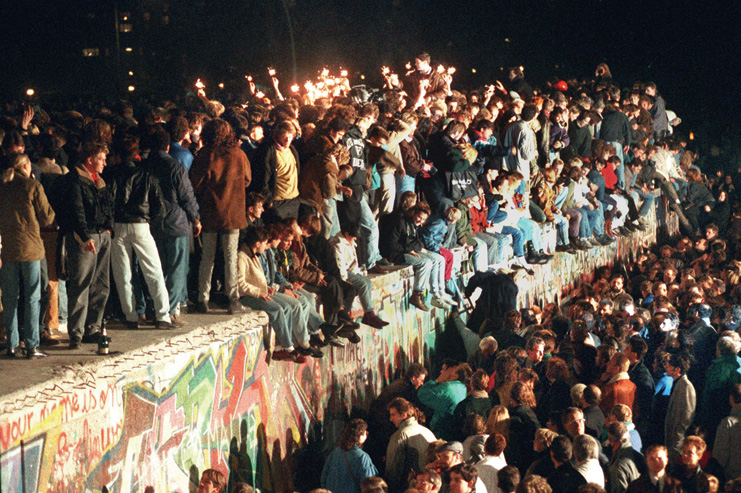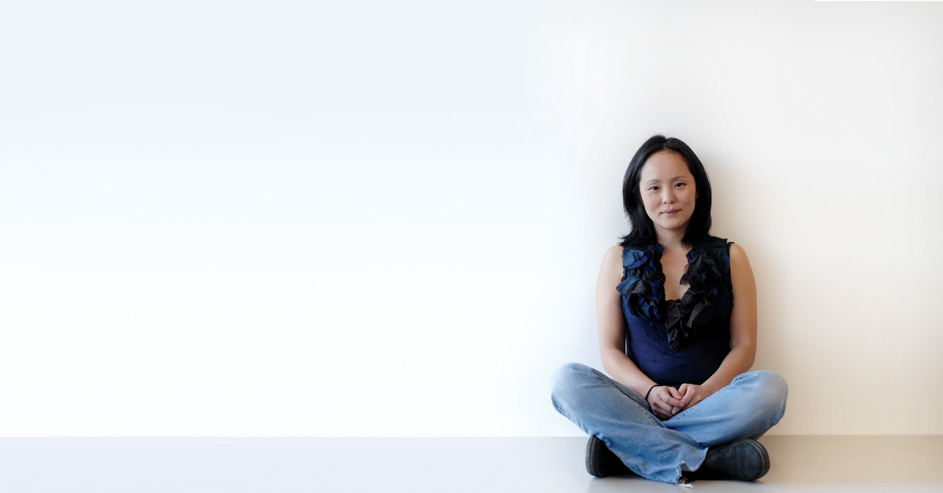
Nov. 11, 1989—Berlin, Germany. Thousands of East and West Germans gathered on and around the Berlin Wall to celebrate immediately after the border crossing points that divided Berlin were finally opened. This year marks the 20th anniversary of the fall of the Berlin Wall, which separated East Germany from West Germany from 1961 until Nov. 9, 1989. © DPA/ZUMA Press
By Paul L. Liem
As we watched the Berlin Wall tumble down, “we wept from the heartbreak of sorrow mixed with joy,” recalls Jungran Shin, a financial advisor in Los Angeles. Separated from relatives in North Korea, Shin felt a longing to “break down into pieces…the barbed-wire fences that block the 38th parallel.” Rev. Syngman Rhee, co-chair of the National Committee for Peace in Korea, says the fall of the Berlin Wall ignited among Koreans new hope for peace and reconciliation, “even though we fully realized that the German situation was quite different from the Korean situation.”
The division of Germany came about partly as a penalty for Nazi aggression. Korea, however, had been a colony of Japan since 1910 and Korean guerilla units in Manchuria fought against the Japanese during World War II. “I don’t know why Korea was punished,” laments Ik Kil Shin, an activist. Shin (no relation to Jungran Shin), was 10 years old when the war in Korea broke out. “Korea was not the aggressor, but the U.S. treated Korea and Korean people as enemies, and carved up the Korean peninsula at the 38th parallel,” he says. “It resulted in war. I survived by running away from machine-gun bullets from the war airplanes.”
Though an armistice was signed in 1953 to pause the fighting, no peace treaty was ever signed. Millions of family members remain separated by the division. “I lost my father due to the war,” explains Ann Rhee Menzie, executive director of the Korean Community Center of the East Bay in Oakland, Calif. “He apparently left my mom and children to go north, thinking that he would return shortly, but he never returned. He never even knew that he had left my mom pregnant with a third child. The pain still hurts my mother, now 85.”
Unlike those interviewed for this article, I was born in the United States as the war raged on in 1952. But at age 37, as I watched pieces of the Berlin Wall lie in rubble on television, the “wall” in Korea remained impenetrable. I wondered if my parents, both born in the North, would live to see Korea reunified. As time would tell, they did not, and on the 20th anniversary of the collapse of the Berlin Wall, the division of Korea appears steadfast as ever.
Still, the reunification of Germany was extremely important not only for Germans, but for Koreans everywhere. “It encouraged me to think that there is always a possibility of change in human history,” the Rev. Rhee says. “There had been some courageous people, in East and West Germany, who worked hard for a vision of one united Germany; their conviction mattered.”
Koreans have taken giant strides toward reunifying their country. The minjok (popular) movements of the 1980s put an end to dictatorship in South Korea, making possible widespread public advocacy for intra-Korean reconciliation. Summit meetings held between the leaders of North and South Korea, in 2000 and 2007, charted out concrete steps toward healing the Cold War wounds that divide the country. But the Cold War in Korea is also an international conflict. The United States and North Korea, as well as North and South Korea, are still technically at war. As long as the standoff remains, so will the division.
To those of the Korean diaspora, Mrs. Shin urges more vocal participation in demanding that the United States changes the Korean War armistice into a peace treaty, normalizes relations, and resolves the nuclear issue with North Korea.
“We have to support our brothers in the North who are struggling with cold and hunger and pain, and we have to help them play a role in international society by offering our hands,” she says. “Now is the time for us to change our fate with our will.”







